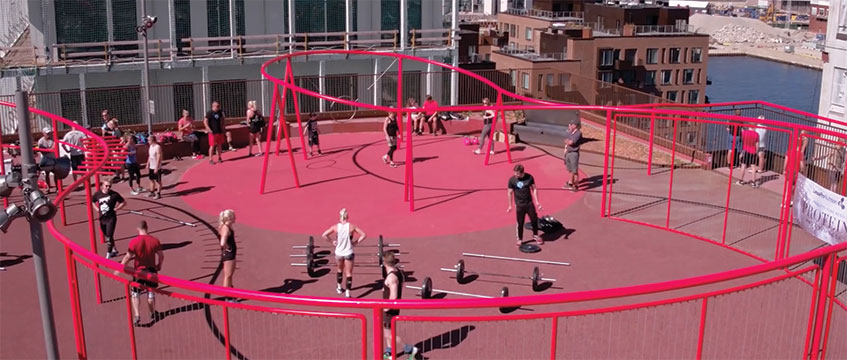BCO 2019: Copenhagen has iconic architecture, collaborative workplaces and some of the happiest workers in the world.
At the British Council of Offices 2019 conference, delegates explained how the built environment can improve employee happiness, productivity and returns. Significant support from the state has seen Copenhagen transformed over the past three years and new mixed-use spaces focus on social connections, flexibility and sustainability.
Here are four key ways the UK property industry could take a lead from the Danes.
1. Work-life balance
The Danes recognise “arbejdsglæde”, which roughly translates to work-life balance and happiness at work.
BCO chair Paul Patenall wrote for EG: “Denmark’s focus on light, space and movement leads to workspaces that truly promote work joy, enabling the high levels of productivity needed for a good work-life balance.”
In Denmark people on average work 33 hours a week, compared with 42 hours in the UK. Yet both salaries and productivity are notably higher.
“Happy companies make more money,” said Woohoo chief happiness officer Alexander Kjerulf. He added that companies need to “take happiness seriously”. Those that ignore this are failing their employees and the company, as well as investors and shareholders.
2. Public sector buy-in
Public sector action has enabled a large amount of regeneration in Copenhagen, bringing new prosperity to the city.
Anne Skovbro, CEO of the publicly backed Copenhagen City & Port Development Corporation, said: “Copenhagen was nearly bankrupt. We have succeeded in securing financial and economic growth, but in a sustainable way.”
She added that the key to driving this forward was the combination of finance from national and local government. This is in part as a result of the very high tax levels, compared with the UK, but also helped by additional finance through selling parcels of public land.
Copenhagen City & Port Development has redeveloped vast swathes of the city, including the Nordhavn (north harbour) neighbourhood, where it transformed former industrial land into a mixed-use leisure hotspot with 2,500 homes (pictured).
3. True mixed-use spaces create value
Danish architect Bjarke Ingels is behind some of the most iconic mixed-use developments across the globe. From Google’s Mountain View campus to the Marina Lofts scheme in Amsterdam, Ingels uses constraints in the physical environment to establish public realm space.
In Amsterdam he has created a courtyard within an apartment development that boats can sail into, creating a destination for visitors. He said: “You may not be able to influence the public realm beyond the building, but you can invite the public into the architectural space.
“Value can be captured by mixing different aspects,” added Ingels. At Copenhagen’s Mountain Dwellings he combined a car park with a residential scheme on the hillside, in order to finance development.
“One of the challenges of residential is that it’s all often very much on the margins, especially if it is mid-market or affordable,” he said. “You don’t have a lot of resources, so if you combine it with other things, the other programmes can also contribute to the environment.”
4. Social workplaces
Collaboration between landlords and tenants early on in building design are delivering workplaces with strong social connections.
Malin Meyer, partner at Danielson Architecture & Space Planning, said: “We don’t socialise after work, we socialise at work. There’s no before and after work – it is happening in the offices, and that’s how we create office spaces.”
Engineering firm Ramboll’s HQ in Copenhagen was created with this in mind: ensuring collaboration and transparency, as well as living and sleeping facilities. And this is being further driven by the trend of co-working spaces at locations such as Blox.
Meyer said: “In Denmark, we see the developers and landlords engaging stakeholders to understand or work with the possible tenant. Service providers or landlords or operators work with a broader package of services, which is quite lively. You are moving away from the desk.”
To send feedback, e-mail emma.rosser@egi.co.uk or tweet @EmmaARosser or @estatesgazette











